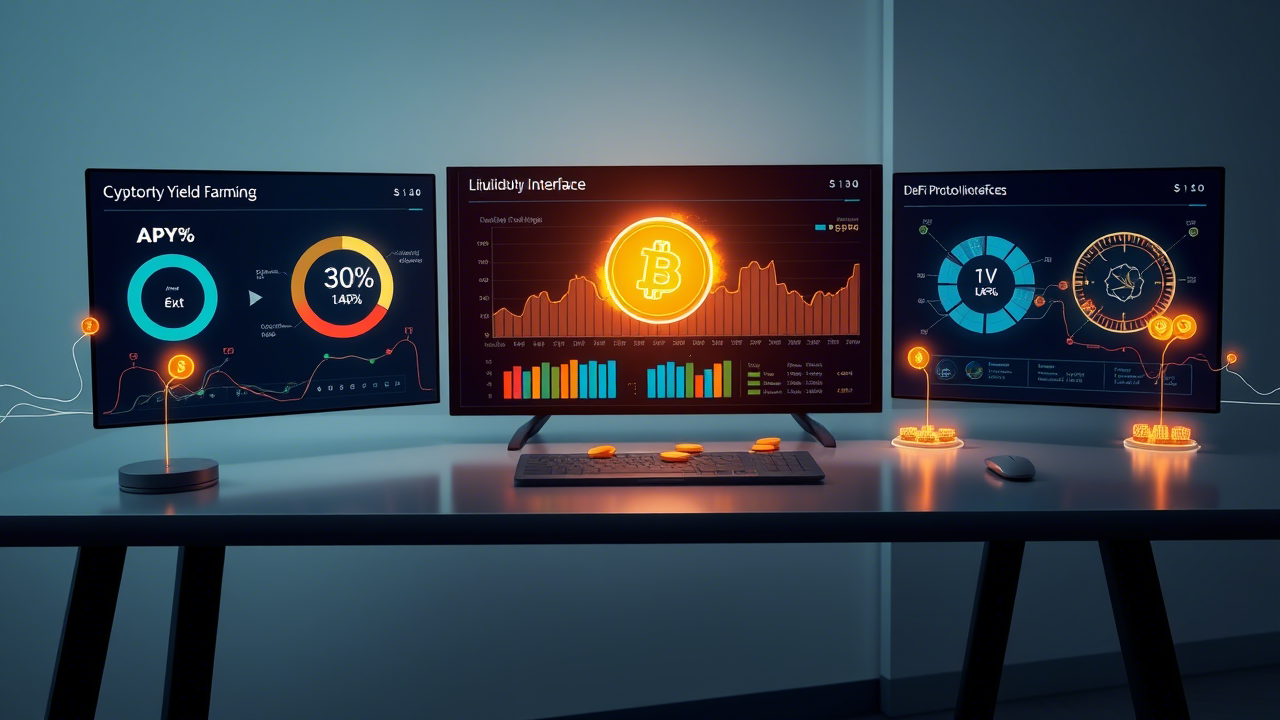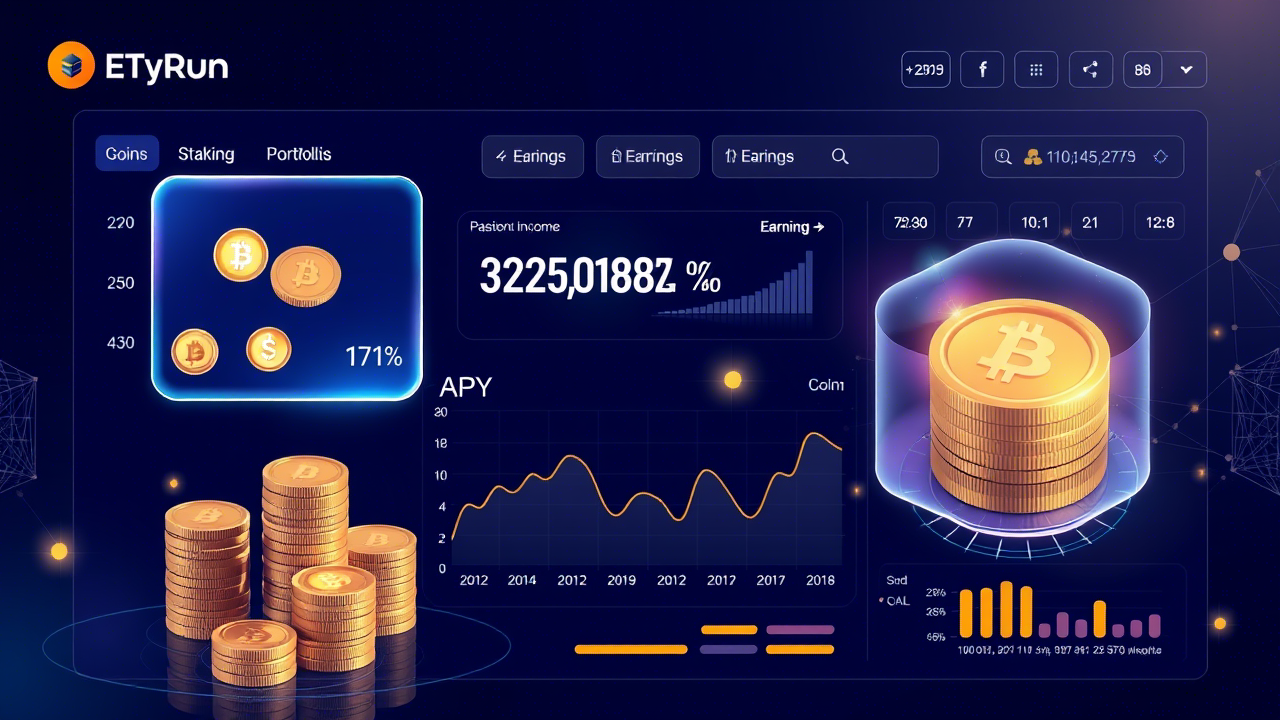When most people hear “blockchain,” they immediately think of Bitcoin or other cryptocurrencies. However, blockchain applications extend far beyond digital currencies, revolutionizing industries from healthcare to agriculture. This distributed ledger technology is quietly transforming how we store data, verify transactions, and build trust in our digital world.
Understanding these blockchain use cases can help you identify investment opportunities, career paths, and business innovations that could shape the next decade. Whether you’re a student exploring tech careers or an entrepreneur seeking competitive advantages, blockchain solutions are creating new possibilities across every sector of the economy. For those interested in practical implementation, learning about cryptocurrency for beginners provides essential foundation knowledge.
Understanding Blockchain Applications Beyond Cryptocurrency
Blockchain technology functions as a decentralized database that maintains a continuously growing list of records, called blocks, which are linked and secured using cryptography. According to Wikipedia, blockchain is “a growing list of records, called blocks, that are linked and secured using cryptography.” While cryptocurrencies were the first major application, the underlying technology offers much broader potential.
The key features that make blockchain valuable include immutability, transparency, decentralization, and security. These characteristics enable applications where trust, verification, and data integrity are crucial. Unlike traditional databases controlled by single entities, blockchain creates a shared ledger that multiple parties can access and verify independently.
For businesses and organizations, this means reducing intermediaries, cutting costs, and increasing efficiency. The technology eliminates the need for central authorities to validate transactions or maintain records, making processes faster and more reliable.
Blockchain Applications in Supply Chain Management Revolution
One of the most promising blockchain applications lies in supply chain management. Companies like Walmart and Unilever are already using blockchain solutions to track products from origin to consumer. This technology provides complete visibility into product journeys, helping identify contamination sources within seconds rather than weeks.
Consider the recent food safety scares that affected thousands of consumers. With blockchain-based tracking, companies can instantly identify the exact source of contaminated products, removing only affected items from shelves instead of conducting massive recalls. This precision saves millions in costs while protecting consumer health.
The fashion industry is also embracing blockchain for authenticity verification. Luxury brands use blockchain to create digital certificates that prove product authenticity, reducing counterfeiting and building consumer confidence. Each product receives a unique digital identity that follows it throughout its lifecycle.
Small businesses can leverage these blockchain use cases by partnering with blockchain-enabled suppliers or implementing simple tracking systems. The transparency builds trust with consumers who increasingly demand to know the origins of their purchases.
Healthcare Blockchain Applications for Data Management
Healthcare represents another frontier where blockchain applications are making significant impact. Patient data security and interoperability have long been challenges for healthcare providers worldwide. Blockchain solutions address these issues by creating secure, portable health records that patients control.
Medical records stored on blockchain remain private and encrypted while allowing authorized healthcare providers to access complete patient histories instantly. This eliminates dangerous gaps in medical information that occur when patients switch doctors or hospitals. Emergency medical situations particularly benefit from immediate access to critical health data.
Clinical trial data integrity is another crucial application. Pharmaceutical companies use blockchain to ensure research data cannot be tampered with, increasing trust in drug development processes. This transparency helps regulators approve safe medications faster while maintaining rigorous safety standards.
The Indian healthcare system, with its diverse provider network, could particularly benefit from blockchain-enabled patient records. Rural patients often lack continuous medical histories, making accurate diagnosis and treatment challenging for urban specialists.
Real Estate and Property Rights
Property ownership verification has traditionally required extensive paperwork and multiple intermediaries. Blockchain applications in real estate eliminate many of these complications by creating tamper-proof property records. Estonia already uses blockchain for property registration, reducing processing time from months to minutes.
Land fraud, a significant problem in developing countries, becomes nearly impossible with blockchain-based property records. Each property transaction creates an immutable record that cannot be altered or disputed. This protection is particularly valuable for small farmers and homeowners who may lack resources to fight legal battles over property rights.
Smart contracts on blockchain can automate rental agreements, property sales, and maintenance contracts. These self-executing contracts reduce legal costs and eliminate disputes by automatically enforcing agreed terms. When a tenant pays rent, smart contracts can automatically transfer funds to landlords and update payment records. Understanding blockchain technology distributed ledgers systems helps investors grasp how these automated processes work.
Real estate investment platforms are emerging that use blockchain to fractionalownership of expensive properties. This democratization allows young professionals to invest in real estate with smaller amounts, diversifying their portfolios beyond traditional options.
Blockchain Applications in Digital Identity Verification
Identity theft and fraud cost individuals and businesses billions annually. Blockchain solutions for digital identity give people control over their personal information while enabling secure verification processes. Instead of storing personal data with dozens of companies, individuals maintain their identity information on blockchain wallets.
Universities are beginning to issue digital diplomas on blockchain, creating tamper-proof educational credentials. Employers can instantly verify degrees and certifications without contacting educational institutions. This streamlines hiring processes while eliminating fake credentials.
Professional licensing bodies can use blockchain to maintain transparent records of certifications and continuing education. Healthcare professionals, lawyers, and engineers benefit from portable, verifiable credentials that transfer across state or national boundaries.
The system particularly benefits remote workers and freelancers who often struggle to verify their qualifications to international clients. Blockchain-based identity systems create trusted profiles that showcase verified skills and experience.
Blockchain Applications for Voting and Democratic Processes
Election integrity concerns have prompted exploration of blockchain applications in voting systems. While still experimental, blockchain voting could eliminate many traditional voting problems including ballot stuffing, lost votes, and verification difficulties.
Estonia has successfully conducted blockchain-enabled elections, allowing citizens to vote securely from anywhere in the world. The system maintains voter privacy while creating auditable election records that increase public trust in democratic processes.
Corporate governance also benefits from blockchain voting systems. Shareholders can participate in company decisions remotely while maintaining transparent voting records. This increased participation leads to better corporate decision-making and accountability.
Student government elections at universities represent perfect testing grounds for blockchain voting systems. The technology engages tech-savvy students while demonstrating practical applications of distributed ledger technology.
Intellectual Property Protection
Creators and inventors struggle to prove ownership and timing of their innovations. Blockchain applications in intellectual property create timestamped, immutable records of creative works and inventions. Musicians, writers, and artists can establish ownership of their work before publication or distribution.
Patent applications benefit from blockchain timestamping that proves when inventions were developed. This documentation helps resolve disputes over patent priority and reduces lengthy legal battles. Small inventors particularly benefit from affordable protection that doesn’t require expensive legal representation.
The entertainment industry uses blockchain to track royalty payments and licensing agreements. Musicians receive transparent royalty calculations while record labels maintain clear ownership records. This transparency reduces disputes and ensures creators receive fair compensation.
Software developers can use blockchain to prove the development timeline of their applications, protecting against intellectual property theft. Open-source projects particularly benefit from clear contribution tracking and attribution.
Charitable Blockchain Applications and Social Impact
Transparency in charitable organizations has long been a concern for donors who want to ensure their contributions reach intended recipients. Blockchain applications in charity provide complete transparency into fund allocation and usage. Donors can track their contributions from donation to final use.
Disaster relief efforts benefit from blockchain tracking that ensures supplies reach affected communities. International aid organizations can demonstrate efficient resource allocation to donors and governments. This transparency increases donor confidence and potentially increases future giving.
Microfinance organizations use blockchain to reduce administrative costs while providing transparent lending records. Small borrowers in developing countries gain access to credit while building verifiable financial histories. This creates pathways out of poverty through improved access to capital.
Social impact bonds implemented on blockchain create measurable outcomes for social programs. Investors fund programs addressing social issues and receive returns based on measurable improvements in community outcomes.
Energy Trading Blockchain Applications and Sustainability
The energy sector is experiencing transformation through blockchain applications that enable peer-to-peer energy trading. Homeowners with solar panels can sell excess energy directly to neighbors through blockchain-based platforms. This creates local energy markets that reduce transmission costs and increase renewable energy adoption.
Carbon credit trading becomes more transparent and verifiable through blockchain solutions. Companies can prove their environmental impact reduction while traders maintain clear records of carbon offset purchases. This transparency helps address climate change through market mechanisms.
Energy grid management benefits from blockchain tracking of energy production and consumption. Utility companies can balance supply and demand more efficiently while providing consumers with detailed energy usage data. Smart contracts can automatically adjust energy distribution based on real-time demand.
Electric vehicle charging networks use blockchain to manage payments and energy distribution. Drivers can access charging stations anywhere while automatic payments and energy allocation optimize the charging experience.
Financial Services Beyond Cryptocurrency
Traditional banking is being transformed by blockchain applications that reduce costs and increase efficiency. Cross-border remittances, which traditionally take days and cost significant fees, can be completed in minutes using blockchain solutions. This particularly benefits migrant workers sending money to families in other countries. For those considering broader digital asset investments, exploring crypto investment for beginners provides valuable context for understanding these financial innovations.
Trade finance, historically paper-intensive and slow, benefits from blockchain documentation that speeds transactions while reducing fraud. Letters of credit, bills of lading, and other trade documents become digital and instantly verifiable. This efficiency reduces costs for importers and exporters.
Insurance companies use blockchain for claims processing and fraud detection. Smart contracts can automatically process claims when certain conditions are met, reducing processing time from weeks to hours. This efficiency benefits both insurers and policyholders.
Peer-to-peer lending platforms built on blockchain eliminate traditional banking intermediaries, offering better rates to both borrowers and lenders. These platforms particularly benefit underserved communities that lack access to traditional banking services.
Education Blockchain Applications and Credential Verification
Educational institutions are adopting blockchain applications to issue tamper-proof certificates and degrees. Students maintain permanent records of their educational achievements that can be verified instantly by employers anywhere in the world. This eliminates the need for transcript verification services and reduces hiring delays.
Online learning platforms use blockchain to track course completion and skill development. Professional certifications become portable and verifiable, helping workers demonstrate their qualifications to potential employers. This is particularly valuable for freelancers and remote workers.
Academic research benefits from blockchain timestamping that establishes publication priority and prevents plagiarism. Researchers can prove when their work was completed while maintaining collaborative relationships with international colleagues.
Student loan management becomes more transparent through blockchain tracking of payments and balances. This transparency helps students understand their obligations while providing lenders with clear repayment records.
Agriculture and Food Safety
Farmers and food producers use blockchain applications to track products from farm to table. Consumers can verify the origin of their food while producers demonstrate compliance with safety and quality standards. This transparency builds consumer trust and can command premium prices for high-quality products.
Organic certification becomes more reliable through blockchain tracking that verifies farming practices throughout the growing season. Consumers can trust organic labels while farmers receive fair compensation for sustainable practices.
Crop insurance claims benefit from blockchain weather data and satellite imagery that provide objective evidence of farming conditions. This reduces claim disputes while ensuring farmers receive appropriate compensation for weather-related losses.
Agricultural supply chains become more efficient through blockchain coordination of planting, harvesting, and distribution activities. This coordination reduces waste while ensuring fresh products reach consumers quickly.
Legal Industry Transformation
Legal professionals are discovering blockchain applications that streamline document management and verification. Contracts stored on blockchain cannot be altered without detection, reducing disputes and fraud. This immutability provides legal certainty while reducing litigation costs.
Notarization services benefit from blockchain timestamping that proves document existence and integrity at specific times. This creates legally binding records without requiring physical presence or traditional notary services.
Legal research becomes more efficient through blockchain databases that track case law and legal precedents. Lawyers can access verified legal information while maintaining clear attribution to original sources.
Dispute resolution processes can be automated through smart contracts that enforce agreed-upon terms. This reduces the need for expensive litigation while providing fair resolution mechanisms for commercial disputes.
Gaming and Digital Assets
The gaming industry has embraced blockchain applications that allow players to truly own in-game assets. Virtual items, characters, and currencies can be traded across different games and platforms. This creates new economic opportunities for players while increasing game engagement. Players interested in securing their digital assets should understand crypto wallet everything you need to know before engaging with blockchain gaming platforms.
Esports tournaments use blockchain to ensure fair play and transparent prize distribution. Tournament results become tamper-proof while prize money distribution occurs automatically based on performance. This builds trust in competitive gaming while reducing administrative overhead.
Digital collectibles in games gain real-world value through blockchain ownership verification. Players can invest in rare items while game developers create new revenue streams through asset sales and trading fees.
Game development funding benefits from blockchain-based crowdfunding that provides transparent fund allocation and milestone tracking. Developers can raise capital while providing investors with clear project progress updates.
Insurance and Risk Management
Insurance companies leverage blockchain applications to automate claims processing and reduce fraud. Parametric insurance products can automatically pay claims based on objective data such as weather conditions or flight delays. This eliminates lengthy claim investigation processes while providing immediate relief to policyholders.
Reinsurance markets become more efficient through blockchain coordination that provides transparent risk assessment and claim sharing. This reduces administrative costs while improving risk distribution across the insurance industry.
Peer-to-peer insurance platforms use blockchain to create community-based insurance pools. Members contribute to collective funds that pay claims automatically based on predetermined conditions. This reduces insurance costs while maintaining community support networks.
Insurance fraud detection improves through blockchain databases that track claim histories and identify suspicious patterns. This protects honest policyholders from higher premiums while ensuring insurance companies remain profitable.
Manufacturing and Quality Control
Manufacturing industries use blockchain applications to track product quality and identify defects throughout production processes. Each product receives a digital identity that records every step of manufacturing, enabling rapid quality control and defect identification.
Automotive manufacturers track vehicle parts from suppliers through assembly and delivery. This tracking enables rapid recalls when defects are discovered while ensuring replacement parts are genuine. Consumers benefit from improved safety while manufacturers reduce liability.
Aerospace and defense industries use blockchain to maintain tamper-proof records of critical component histories. This ensures safety while meeting strict regulatory requirements for aircraft and military equipment.
Quality certifications become more reliable through blockchain verification that prevents falsification. Manufacturers can demonstrate compliance with safety and quality standards while customers can trust product certifications.
Government Blockchain Applications for Services and Public Records
Government agencies are implementing blockchain applications to improve service delivery and transparency. Public records stored on blockchain become tamper-proof while remaining accessible to citizens and businesses. This reduces corruption while improving government accountability.
License and permit issuance becomes more efficient through blockchain systems that automatically verify eligibility and maintain renewal records. Citizens benefit from faster service while government agencies reduce administrative costs.
Tax collection and audit processes benefit from blockchain transparency that provides clear financial records. This reduces tax evasion while simplifying compliance for honest taxpayers.
Border control and immigration services use blockchain to maintain secure traveler records while facilitating legitimate travel. This improves security while reducing processing delays for travelers.
Healthcare Supply Chain
Pharmaceutical companies use blockchain applications to track medications from manufacturing through distribution to patients. This tracking prevents counterfeit drugs from entering the supply chain while ensuring medication authenticity and safety.
Medical device manufacturers maintain blockchain records of device histories that enable rapid recalls when safety issues are discovered. Healthcare providers can verify device authenticity while patients receive safer medical care.
Clinical trial supply chains benefit from blockchain tracking that ensures proper medication handling and storage. This maintains trial integrity while providing regulators with transparent oversight of drug development processes.
Emergency medical supply distribution uses blockchain coordination to ensure critical supplies reach healthcare facilities during crises. This coordination improves disaster response while preventing supply shortages.
Future Outlook and Investment Opportunities
Blockchain applications continue expanding across industries as technology matures and costs decrease. Early adopters gain competitive advantages while building expertise in distributed ledger technology. Understanding these applications helps identify career opportunities and investment potential. For those ready to take action, learning about best crypto to buy now smart investment strategies can provide practical next steps for blockchain-related investments.
The convergence of blockchain with artificial intelligence, Internet of Things, and 5G networks creates new possibilities for innovation. Smart cities, autonomous vehicles, and advanced manufacturing will increasingly rely on blockchain infrastructure for security and coordination.
Regulatory frameworks are evolving to support blockchain adoption while protecting consumers and maintaining market stability. This regulatory clarity will accelerate mainstream adoption across industries and geographic regions.
Professional development in blockchain technology offers career advancement opportunities across multiple industries. Whether in technical development, business analysis, or project management, blockchain skills are increasingly valuable in the modern economy.
Frequently Asked Questions
What makes blockchain applications different from traditional databases?
Blockchain applications provide immutability, transparency, and decentralization that traditional databases cannot match. While regular databases can be altered by administrators, blockchain records are permanent and verified by multiple parties, creating unprecedented trust and security.
How do blockchain use cases benefit small businesses?
Small businesses can leverage blockchain solutions to compete with larger companies by accessing the same level of transparency, security, and efficiency. These applications reduce costs, eliminate intermediaries, and build customer trust without requiring significant upfront investments.
Are blockchain applications secure for sensitive data?
Blockchain solutions provide excellent security through cryptographic protection and distributed verification. However, proper implementation and key management are crucial for maintaining security. Most blockchain applications are more secure than traditional centralized systems when properly designed.
What skills are needed to work with blockchain technology?
Technical roles require programming skills in languages like Solidity, Python, or JavaScript. Non-technical positions benefit from understanding blockchain concepts, project management skills, and industry knowledge. Many opportunities exist for professionals willing to learn blockchain applications in their existing fields.
How can I evaluate blockchain investment opportunities?
Focus on real-world applications that solve actual problems rather than speculative projects. Look for established use cases, experienced teams, and clear business models. Avoid investments that promise unrealistic returns or lack transparent technology explanations.
Final Thought
Blockchain applications represent a fundamental shift in how we store, verify, and transfer value across all aspects of society. While cryptocurrency remains the most visible application, the technology’s true potential lies in solving real-world problems across healthcare, education, supply chains, and governance. Understanding these diverse blockchain use cases positions you to recognize opportunities, make informed investment decisions, and potentially contribute to innovations that will shape the future economy. The key to success lies in focusing on practical applications that create genuine value rather than getting caught up in hype or speculation.












Leave a Reply